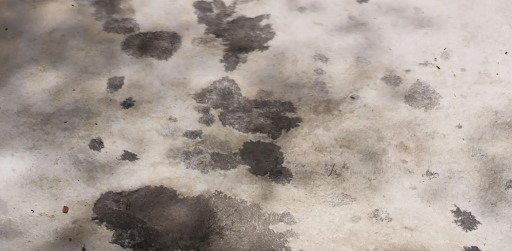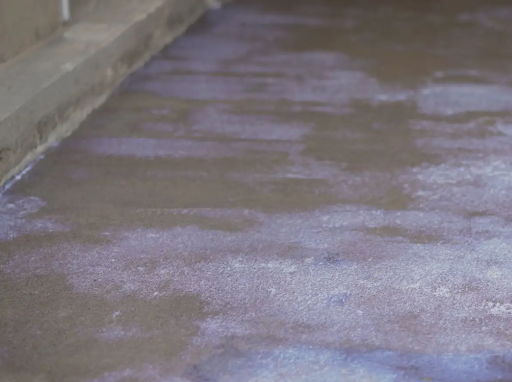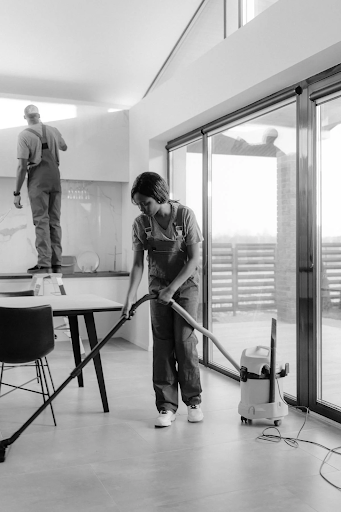Concrete Coating Failures: Warning Signs Your Floor Needs Attention
Have you ever noticed a small bubble in your garage floor coating or a strange, dull spot in your commercial entryway that wasn't there last month? These seemingly minor imperfections might be trying to tell you something important. As Worcester County's concrete coating specialists, we've seen how minor issues can quickly escalate into expensive repairs when ignored.
At LC Visions Epoxy & Coatings, we believe in preventing problems before they start. After installing hundreds of residential, commercial, and industrial concrete coatings throughout Massachusetts, we've developed a keen eye for the early warning signs that indicate your floor might need some attention. Let's explore what your floor might be trying to tell you.
Why Even the Best Concrete Coatings Eventually Show Signs of Wear
No concrete coating lasts forever—not even our premium polyurea systems (though they come pretty close!). Worcester County's challenging environment puts enormous stress on your floors: freeze-thaw cycles, road salt in winter, humidity fluctuations, and everyday wear take their toll.
The typical lifespan varies significantly by coating type:
- Basic DIY epoxy kits: 2-5 years
- Professional epoxy flake flooring: 10-15 years
- Metallic epoxy flooring: 10-15 years
- Commercial-grade polyurea systems: 15-20+ years
However, these lifespans assume proper installation and maintenance. When issues arise prematurely, it's usually due to one of these factors:
- Inadequate surface preparation (the #1 cause we see in Worcester)
- Moisture problems (especially common in our New England basements)
- Improper application techniques
- Using products not suited for the environment
- Excessive exposure to chemicals or impacts
Early Warning Signs

The good news? Your floor typically gives you several warning signs before a major failure occurs. Here's what to watch for:
1. Surface Dulling or Loss of Gloss
When your once-shiny epoxy flake flooring or metallic epoxy starts looking cloudy or dull in specific areas, it's often the first sign of topcoat wear. The phenomenon is particularly common in high-traffic areas of commercial spaces and near workstations in industrial settings.
2. Fine Surface Cracks (Crazing)
Those tiny, spiderweb-like cracks across your coating's surface often indicate UV damage or coating stress. We frequently see this in residential garage floors that get direct sunlight through windows or open doors.
3. Color Changes or Fading
Has your vibrant metallic epoxy floor started to look less dramatic? Color changes often indicate chemical exposure or UV damage. In Worcester commercial spaces, we commonly see this near the entryway, where salt and de-icing chemicals are tracked.
4. Edge Peeling or Lifting
When coatings begin separating at the edges (particularly along walls or expansion joints), it usually indicates moisture migration or poor adhesion. This is especially common in basement applications throughout Worcester County.
5. White Powdery Residue (Efflorescence)
This mineral deposit appears when moisture moves through concrete and evaporates at the surface. It's a clear sign of moisture issues that need addressing before recoating.
Red Alert: Advanced Warning Signs That Demand Immediate Attention

If you notice any of these more serious indicators, don't wait to call us:
1. Widespread Delamination
When large sections of your coating are lifting or peeling away from the concrete, it indicates a significant adhesion failure. In industrial settings with polyurea floors, this can create serious trip hazards.
2. Bubbling or Blistering
These raised areas are almost always caused by moisture vapor pushing up through the concrete. We see this frequently in Worcester commercial buildings with inadequate moisture mitigation systems.
3. Cracks That Extend Into the Concrete
When cracks penetrate both the coating and the concrete beneath, structural issues may be at play. This is particularly concerning in industrial environments where heavy equipment might be exacerbating the problem.
4. Chemical Damage or Staining
Dark spots, discoloration, or soft areas often indicate chemical breakdown of the coating. We've rescued many industrial floors where inappropriate coating systems were installed due to the chemical exposure present.
Different Spaces, Different Warning Signs
The warning signs vary depending on your specific application:
Residential Concrete Coatings: Watch for hot tire pickup in garages (dark spots where tires rest) and edge lifting in basements. These are the most common early failures we see in Worcester homes.
Commercial Concrete Coatings: High-traffic areas typically show wear paths before other problems develop. Our commercial clients often first notice dulling at entrances and checkout areas where foot traffic is heaviest.
Industrial Concrete Coatings: Impact damage, chemical erosion, and joint deterioration are the three trouble signs in manufacturing and warehouse environments. Our industrial-grade polyurea systems resist these issues far longer than standard epoxy, but even they will eventually show wear.
Protect Your Investment: What to Do When You Spot Warning Signs

- Document the issue with photos
- Monitor minor problems for changes
- Clean the area thoroughly to ensure what you're seeing isn't just surface dirt
- Consult with a professional before attempting DIY repairs (which often make professional repairs more difficult later)
At LC Visions, we offer complimentary assessments for Worcester County property owners. Often, we can spot developing issues that aren't yet visible to the untrained eye, potentially saving you thousands in repairs.
The Bottom Line: Don't Wait Until Your Floor Fails Completely
A failing concrete coating doesn't get better on its own. Early intervention is always less expensive and less disruptive than complete replacement.
Whether you have epoxy flake flooring in your Worcester home's garage, metallic epoxy in your commercial showroom, or polyurea floors in your industrial facility, LC Visions Epoxy & Coatings can help extend the life of your existing floor or provide expert guidance on replacement options.
Contact us today for a free, no-obligation floor assessment.

